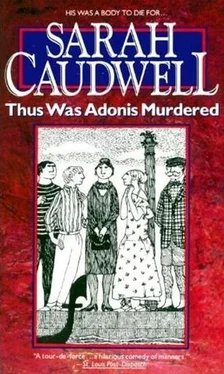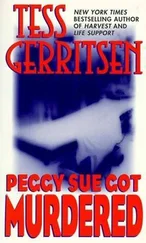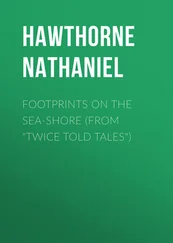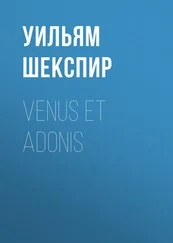I called at the Consulate, as usual, a little after ten o’clock, to see if there were any messages for me and to discuss with Signor Vespari, in view of the unfavourable forensic report, what arrangements should be made for Julia to be represented by an Italian lawyer experienced in criminal matters. I found him waiting for me with great impatience, being curious to know the contents of your telegram, which he handed to me as soon as I arrived. I read it, I must confess, with considerable irritation. Though not noticeably brief, it gave me, of course, no indication of what you were hoping to prove; I thought it highly probable that you were introducing unnecessary complications to gratify your taste for amateur theatricals. On the other hand, not knowing what other arrangements you might have made, I could not be sure what the consequences might be if I failed to comply.
My first impulse was to telephone and demand an explanation. I was not sure, however, where to find you at that time, and you had left me with less than an hour and a half in which to secure the cooperation of the Vice-Quaestor. I resigned myself with the utmost reluctance to acting blindly on your instructions. I decided, moreover, since you had gone into such detail, that I had better follow them to the letter — though the only thing that really seemed to matter was that Marylou and I should be outside the Basilica San Marco at twelve o’clock and that we should then be under discreet observation by the police.
You do not seem to realize, Hilary, that it is unusual for a senior police officer to be peremptorily summoned by a foreign lawyer to attend with two of his men at a particular time and place at an hour’s notice and without explanation. I am still not sure how we managed it — or rather, how Signor Vespari managed it, since he did all the talking. He told the Vice-Quaestor that my “investigations in London” had been conducted by three members of the English Bar, under the personal supervision of a scholar of international repute — meaning, God help us, yourself — and added, rather grandly, that if your instructions were not carried out he could not be answerable for the consequences. Whether because he was really impressed by all this nonsense, or out of mere curiosity, the Vice-Quaestor eventually agreed to do as we asked.
Leaving the Consulate at twenty past eleven and walking towards the Accademia Bridge, I saw that Marylou was already sitting at one of the tables outside the café. It seemed absurd to delay approaching her; but since you had insisted that I should not do so until exactly half past, I spent the next ten minutes pretending to choose postcards from the newspaper stall outside the Accademia Gallery. Out of the corner of my eye I could see the Vice-Quaestor and two other policemen standing near the door of the Gallery, making rather a success of looking as if they had nothing to do.
At exactly half past, I went up to Marylou and asked if she was Mrs. Bredon. Although I had recognized her easily from seeing her at Heathrow, I assumed that you would not have mentioned that occasion to her. She acknowledged that she was, but invited me to call her Marylou. After I had briefly explained to her what you wanted us to do, we set forth across the Accademia Bridge. She suggested that it would be more convenient to go by vaporetto across the Canal straight to St. Mark’s. I told her, however, that you had specifically directed me to go on foot, and that I did not think it prudent to depart from your instructions.
Your insistence that once we had met I should on no account leave her side until speaking to you on the telephone made me extremely nervous. It was not clear to me whether I was there to prevent her escape or to guard her against attack. But having come to Venice of her own free will, I could not imagine why she should suddenly run away. I concluded that my function was protective. All the way to the Piazza, I kept looking over my shoulder for some lurking assailant: the narrowness of the crowded streets seemed dangerously restrictive of movement in any emergency. I was a little, but not much, comforted by our retinue of policemen.
We reached the Piazza at about ten to twelve. I found it at first a relief to be in an open space; but half way across I began to think that the centre of the Piazza was a singularly exposed and vulnerable place, and to wish that I had kept Marylou in the shelter, however illusory, of one of the colonnades at the side. Still, we arrived without misadventure at the entrance to the Basilica. We stood there, among the tourists and the pigeons, wondering what was going to happen, Marylou looking round for a face she might recognize, I still apprehensive of some attack on her.
The mechanically operated bronze figures at the top of the Orologio, which mark the hour by striking on the bell, began to emerge from their places, raising their hammers. The other tourists in the Piazza looked up to watch the little spectacle; the street photographers and sellers of souvenirs continued about their business; Marylou and I went on searching for a familiar face or a threatening gesture, but counted, as we did so, the alternate strokes of the hammers against the bell. The last stroke sounded and was lost in the blue sky above the Piazza; and nothing happened.
“What do we do now?” asked Marylou.
“According to our instructions,” I said, “we go straight home — that is to say, to the Palazzo Artemisio, where I am staying — and telephone Professor Tamar to report progress. We control as best we can our irritation at being involved in this fiasco.”
I had been, as you very well know, reluctant to make any telephone calls from the Palazzo, not wishing Richard Tiverton to be aware that I had been concerned, while in Venice, with other affairs than his own. 1 felt, however, a residual unwillingness to depart from your instructions; besides, it was easier to telephone from there than to trail back to the Consulate. I hoped, in any case, that I would be able to make the telephone call without attracting Richard’s attention, since he was still not feeling well enough to leave his room much. I would, I thought, express as succinctly as possible my opinion of the little pantomime you had organized; I would then tell the policemen, with grovelling apologies, that I no longer required their attendance; I would then take Marylou to lunch at Montin’s.
I was a little embarrassed, therefore, on entering the Palazzo, to find my client already in the entrance hall, himself engaged in a telephone conversation. The more so since it seemed to be acrimonious — he was saying, irritably, “But you must have done — who else would have sent it?” As we came in, however, he looked up and broke off the conversation.
“I’m so sorry, Richard,” I said, “please don’t let us disturb you.”
He did not, however, resume his conversation. I saw, as my eyes adjusted to the comparative darkness of the interior, that he was paying no attention to me, but was staring at the girl beside me.
Looking again at her, I saw that she was staring back at him, with an expression of great amazement.
“Why, Ned,” said Marylou, “I thought you were—” for reasons of euphony or otherwise, she did not complete the sentence, but began to scream.
“I’m sorry,” said the young man, speaking calmly into the telephone receiver. “It’s the American girl. She’s recognized me. And there are some policemen.” The Vice-Quaestor’s subordinates, drawn by the scream, had come to the door, still open, of the Palazzo. “I’m afraid that’s the end of it. Goodbye.”
He left the receiver hanging and ran for the marble staircase. The two policemen ran in and after him. I followed, with some notion, I think, that he was still my client and I should be on hand to protect him.
Читать дальше











